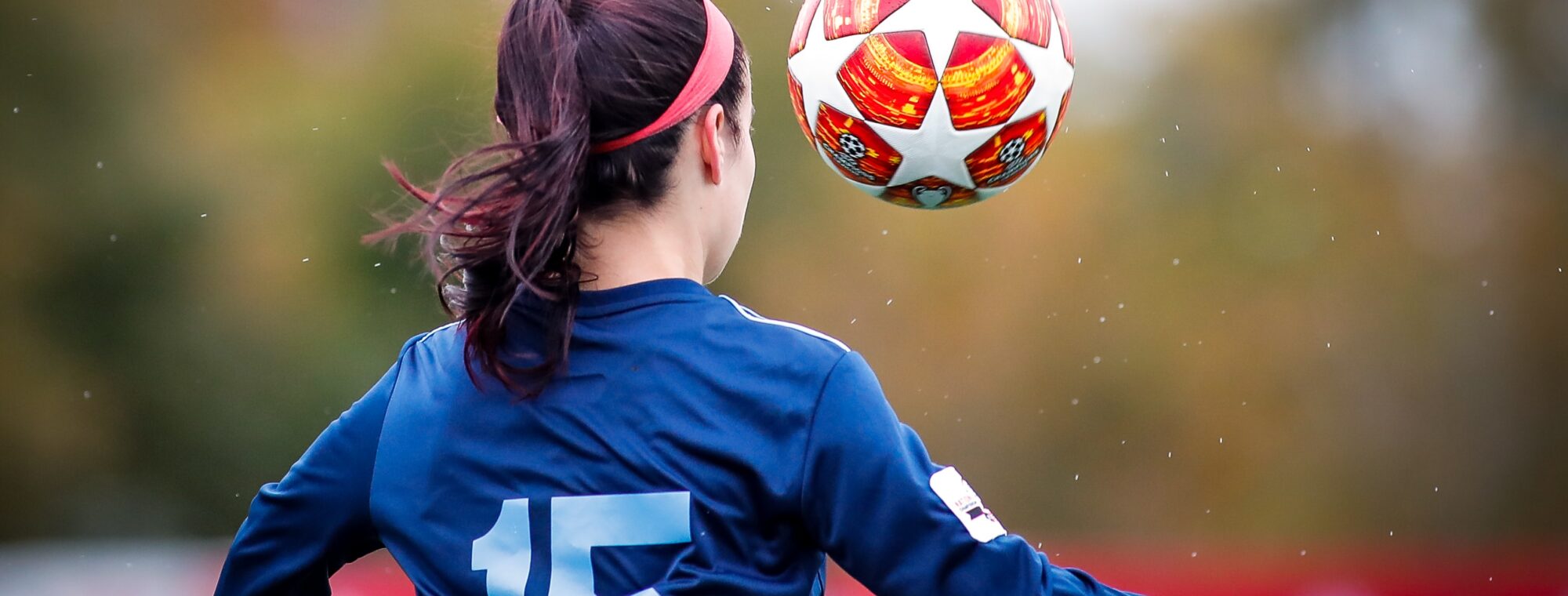
Colt: Harry Batt and the Lost Lionesses: A story of the unsung hero of women’s football
16th August 2023 – Hear from Jenni Sach, Director of Business Partner Marketing at Colt and global co-lead of their Women+@Colt network, as shares the untold story of Harry Batt and what a brilliant ally he was for women and women’s football.
I know many of us are transfixed by the women’s football World Cup taking place at the moment in Australia and New Zealand. I am so excited by the games and I’m eagerly anticipating the continued growth of women’s football as girls all over the world gain inspiration from these incredible players. It’s fantastic to see everyone, men and women, equally gripped by the competition, to see coverage on mainstream TV channels and press reporting at a scale we couldn’t have predicted 10, or even five years ago.
Women’s football has seen a huge surge in popularity recently, but did you know that in the UK women were banned from playing the game by the FA in 1921? Announcing the ban in a statement they claimed, “The game of football is quite unsuitable for females and ought not to be encouraged.”
Although this seems laughable today, incredibly the ban was not lifted until 1971 and the intervening 50 years had a catastrophic impact on participation rates in women’s football. Women were banned from playing in professional stadiums and coaches and referees were threatened with fines and suspensions for officiating at games. Unsurprisingly, football clubs stopped fielding women’s teams and deprived of role models, girls were unlikely to take up the sport. Women’s football is still recovering today, lagging behind the men’s game in terms of participation rates, equal pay, sponsorship and media coverage.
But in the face of adversity, there are shining lights who step up to right the wrongs they see, and today I want to celebrate an amazing man who did just that, Harry Batt.
Harry was a bus driver from Luton who believed in women’s football and was brave enough to defy the ban by forming a women’s team, the Chiltern Valley Ladies who he coached until they reached a strong playing standard. He also became part of the first governing body in women’s football (WFA) and was instrumental in getting the FA to overturn the ban in 1971.
Harry had global ambitions for his team. He formed an unofficial team of England players, mostly from his club, and took them to the unofficial 1969 European Championships and the 1970 World Cup. These rogue Lionesses played in professional stadiums in front of large crowds for the first time in their lives.
In 1971, Harry took the team, now known as the Lost Lionesses, to the World Cup in Mexico where they played in front of crowds of up to 95,000 spectators. I can’t imagine how brave those players were to go from a small pitch in a little town in England with a handful of spectators to a stage of that size. I wish I could say that they won, but they were beaten by Argentina and then Mexico, and not used to the rigours of the game sustained several injuries. However, they fought bravely and their spirit and determination won the hearts of the Mexican crowds. There were treated as heroes in Mexico and celebrated internationally. You can find out more about the team and their matches in this BBC article.
Harry and the team were triumphant on their return to the UK and hoped for a huge surge in the popularity of women’s football. However, the players returned home to a three-month suspension, and Harry was banned from football for life and all of his teams disbanded. An unbelievable decision which unfortunately was not reversed and haunted him until his death in 1985.
The increase in popularity of women’s football has led to more people hearing the story of the Lost Lionesses and the incredible Harry Batt, gathering recognition of their achievements. I’m just sad that he wasn’t alive to see it and to witness the global interest in women’s football today.
I wish there was a way to tell him about the recent UK government’s decision to introduce football for everyone in the school curriculum, about the current World Cup and the thousands of grassroots teams springing up all over the globe.
I wish there was a way to tell him that his allyship was worth it in the end. Harry Batt was a pioneer, a maverick, a coach and above all, an ally. And it’s his allyship for women and football that I want to celebrate today.
An ally is someone willing to stand with underrepresented groups and actively support and advocate for them. Harry was the most incredible ally to the women in his team and his legacy lives on today for all of us who enjoy watching or participating in women’s football.
His belief in the future of women’s football and his determination to make it happen came at a huge personal cost in the end. However, he is a true inspiration for the power of standing up for what you believe in, for refusing to allow discrimination and for dreaming big.
Harry Batt; passionate ally and pioneer of women’s football – we salute you!
At Colt, we have been asking all employees to take an allyship pledge. I hope the story of Harry Batt’s allyship inspires you to sign up to a similar program at your company and follow in his footsteps. Whether we make a positive change for hundreds of thousands of women footballers or simply in our working day, I believe being an ally is one of the most important things we can do.
For more resources on allyship, read this blog post on ‘The Importance of Allyship‘ by Alliance member Colt.
Photo Credit: Article image by Your Lifestyle Business on Unsplash




